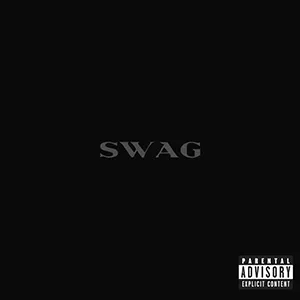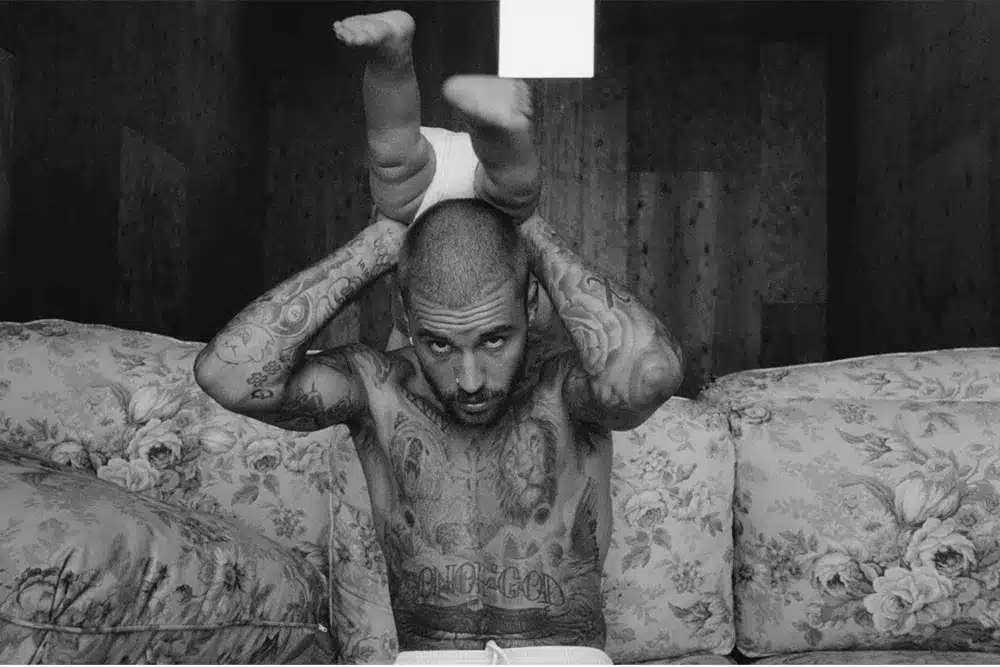
Justin Bieber’s new album, Swag, takes a cautious approach to pop, adding depth to the pop star’s familiar oeuvre while highlighting his newfound contentment.
 Swag Justin Bieber Def Jam 10 July 2025
Swag Justin Bieber Def Jam 10 July 2025
In the 2020s, Hailey Bieber, spouse of the pop star Justin Bieber, began to outshine him as the more prominent public figure in their relationship. While Justin‘s 2019 album Changes received mixed critical reception, and, due to health concerns, the singer cancelled 2022’s Justice World Tour, Hailey’s beauty company, Rhode, was acquired by the conglomerate e.l.f. Beauty for one billion dollars in June 2025. Additionally, that same month, Hailey appeared on the cover of Vogue. In response, Justin offered a backhanded congratulations via social media, saying, “This reminds me [of] when Hailey and I got into a huge fight… I told [her] she would never be on the cover of Vogue.”
However, Justin’s seventh studio album, Swag, radiates peace from a secondary place in the spotlight, using that acceptance to develop the most cohesive artistic statement of his career. In July of 2025, Rolling Stone reported that, after splitting with longtime manager Scooter Braun, Swag is Justin’s “first time… hav[ing] 100 percent creative freedom.” The result is a fine-tuned combination of funk, R&B, and soft rock. While Changes embraced hip-hop beyond the point of a pop star’s recognition, and the saccharine Justice overcorrected this misstep, Swag refines the mission of Bieber’s 2015 album Purpose, when he first strayed from predictable teen pop.

Swag confronts Justin Bieber’s celebrity on several tracks. In “Therapy Session”, a conversation with comedian Druski, Bieber discusses the trials of youth publicly, saying, “It starts to make me feel like I’m the one with issues and everyone else is perfect.” This observation subverts the archetypal pop star, a supposedly aspirational figure. In another spoken-word track, “Standing on Business”, Bieber takes his public existence less seriously, including a recording of an altercation he had with paparazzi that turned into a viral meme.
In “Go Baby”, a hymn of praise for Hailey, Justin provides her with free advertising, mentioning Rhode’s signature product: “That’s my baby, she’s iconic / iPhone case, lip gloss on it.” Later, in “Devotion”, Bieber channels marital bliss through a low-fi, acoustic, bluesy rendition of Leon Bridges‘ “River”, which distinguishes itself simply through its selection of a less-than-obvious source of inspiration.
Throughout, a soothing chorus echoes Bieber’s mellow confessions as he hones in on quiet moments, recalling how his lover “flicks an ash out on the patio”. An image of outdoor relaxation conveys the song’s country spirit, situating it far away from the Top 40-courting nature of singles like the gospel-inspired “Holy” and hip-hop-indebted “Yummy”.
Bieber is no stranger to love songs, and Swag abounds with them. “Butterflies” is a summer-appropriate, wistful ode to lasting love, backed by a muted guitar. Using synths on “Way It Is” and “Walking Away”, Bieber assures listeners he can refrain from throwing himself headfirst into hip-hop emulation, staying true to his pop roots in a mature way.
In 2019, when Changes was nominated for Grammys in the pop category, Bieber wrote on Instagram, “I set out to make an R&B album. Changes was and is an R&B album.” Although the star may have pursued labels previously, Swag is a happy medium between an imitation of Bieber’s idols and a recognition of his strengths as a pop artist.
Aside from moving beyond it, Swag parodies Bieber’s former earnestness. In “Soulful”, another spoken-word track featuring Druski, the comedian tells Bieber, “On this album, I can hear the soul. Your soul is black.” By openly acknowledging his inspirations, Bieber pays homage to them while staying true to his own lane.
Elsewhere, the electric guitar-driven chorus of “Daisies” resembles Bieber’s early chart-topping hits in a cautious, laid-back manner. The singer comfortably lays down vocals over resonant guitar, creating an unlikely harmony between soft utterances and reverberating chords. The shiny, percussive elements of the opening track “All I Can Take” introduce a record that never loses its footing through an exploration of various sounds, as Bieber projects an adult’s sense of well-being. In a 2021 interview with GQ, he said, “This is what healthy adults do. They have schedules; they have calendars… It’s not rocket science.”
In the documentary Seasons, a friend of Bieber’s, Ryan Good, states that, due to the rock star lifestyle, “standard levels of dopamine don’t get [Bieber] excited anymore”. Child stars embody a contradiction: as children, they are bound to dream about the future, but what more could they possibly have?
Later in Seasons, Bieber’s former manager, Scooter Braun, says, “No one in the history of humanity has ever grown up like Justin Bieber.” While this observation elicits sympathy for the pop star, coming from his mega-manager, it is also self-congratulatory. In 2023, when Bieber sought out new management, several other high-profile artists dropped from Braun’s roster, including Arianna Grande, Demi Lovato, and Carly Rae Jepsen. In the music business, child stars play two roles: they are a product being sold and a beneficiary of that transaction. Meanwhile, people behind the scenes, like Braun, reap the purest benefits of a culture’s obsession with idolatry.
Raised by a single mother, Bieber, as a teenager, looked to Braun as a father figure. In hindsight, it is not difficult to imagine Braun taking advantage of this role for business purposes. In a statement congratulating Bieber on the release of Swag, Braun signed off by saying, “Now I’m off to take my kids to see Superman.” This needless bit of personal information exposes the entire letter as an excuse for Braun to paint himself in a positive light.
However, some exercises in public relations are benign. While interviewing Hailey Bieber for Vogue, Alessandra Codinha accompanied the beauty mogul to her Los Angeles home, where Justin could be heard recording music in a far-flung corner of the house. This scene humanizes the couple, revealing that pop stardom is a daily part of their lives, just like any other job.
Similar to the way this interview provided depth to Hailey’s persona, Swag adds texture to an artist over a decade into his career, whose previous work is characterized by overzealous attempts to nail down a certain genre. (In Justin’s early pop work, this all-in approach led to chart success.) Details like the intricate guitar strumming of “Things You Do” reimagine Bieber in a familiar way, the essential strength of any pop star: generating newness within structure.
In “Daises”, he says, “The way you got me all in my head / Think I’d rather you in my bed.” While not an inventive lyric, this line captures Bieber’s newfound contentment, evident in the way he breezes between musical styles on Swag. By making peace with a restless spirit, Bieber finds space for his central preoccupation: a marriage, which, at the moment, appears to be more than public relations.


